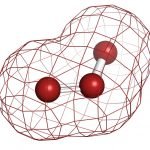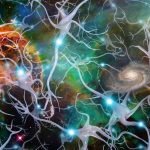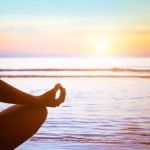Be-Do-Have Health Values
Charley Cropley, ND
Mark Percival, DC, ND
Naturopathic Perspective
The Effective and Enjoyable Path to Success
In general, our culture has taught us to link our level of personal satisfaction and happiness to the physical or material results of our efforts. We are led to believe that if we “DO” the right things, then we will “HAVE” what we want. Once we “HAVE” what we want, we will “BE” happy. With this model for how to produce happiness and fulfillment, it is little wonder why so many of us spend our lives in the endless pursuit of happiness through “HAVING.”
Think about those people you know who have been successful in career, health, relationship, and mind (assuming you know any at all). The scarcity of people who are truly healthy and happy in all areas of their lives is evidence of the ineffectiveness of the “DO-HAVE-BE” model. Unfortunately, the lack of awareness of a more complete and effective model has led most people to believe that if they only work harder at DOING and HAVING, they will BE successful. The result is millions of people trying to motivate themselves to work longer and harder to produce what they want in ways that won’t work.
Adding anguish to exhaustion is the fact that our culture has also taught us to motivate ourselves primarily through increasing levels of fear, shame, guilt, coercion, and despair. It’s a pretty safe bet that spending more time in any of these states is not what you want or value. Can this truly be is the means to our desires? If so, why hasn’t it worked for more of our family, friends, acquaintances, and predecessors? Thus, the paradox so many of us face today. How do we have more of what we truly want without spending time in the counterproductive states of dis-ease (exhaustion, fear, guilt, shame, etc)?
The following discussion introduces you to a much more effective and enjoyable path to success. This path is based on clear and straightforward natural principles, but will require some new thinking on the part of most of our readers.
The DO-HAVE-BE Model
The DO-HAVE-BE model has many limitations, as we discussed. This lesson will help you recognize the value of a more functional and enjoyable approach: it is the BE-DO-HAVE model. You will be asked to focus on these questions: 1) What do you value HAVING? 2) What do you value DOING? and 3) How do you value BEING?
- “Having” values refers to those things you want to have, such as more energy, clear sinuses, more flexible joints, or more money.
- “Doing” values refers to the actions that can bring you what you want. For example, to have better physical health, you might…
- develop your tastes for fresh fruit and vegetables
- reduce chocolate and alcohol
- run or bike daily
- learn to cook wholesome foods that really appeal to you
“Doing” values may also refer to activities you value doing for their own sake, such as running, sleeping, traveling, eating, etc.
- “Being” values refer to how you like to be, such as being happy, peaceful, enthused, loving, trusting, and so forth.
What you do clearly affects what you have. That’s obvious to most people and it is the basis for our approach to finances, athletics, scholastics, and virtually every area of human endeavor. However, few people are aware of the link between our Ways of Being and what we do. If you don’t recognize how being influences doing, you will be less effective at improving what you do. As certainly as night follows day, your ways of doing follow your ways of being.
Write that down, underline it, and commit yourself to understanding it. Your ways of doing follow your ways of being. If you want to change your behaviors (ie, what you do), then focus on changing your ways and States of Being. Obviously you must first develop a working understanding of what we mean by State of Being. This will be the focus of most of our lessons and practical exercises in this section on valuing.
False Assumptions
Most people unconsciously employ a DO-HAVE-BE approach to accomplishment. Again, this means that by doing certain actions, you will then have certain results that will, without question, put you in a more desired State of Being. While this seems reasonable in theory, this DO-HAVE-BE model is misleading and it can seriously undermine your attempts to improve your health.
You will get more out of the rest of this lesson if you pause here and write 3 examples from your own life where you are currently employing a DO-HAVE-BE approach. Think of some things you want to have. Are you focusing primarily on what you need to do in order to get them?
This DO-HAVE-BE approach is founded upon 2 false assumptions, and the better you understand them, the less they will adversely affect you.
- The first false assumption is that we can improve our ability to change what we do (eg, eating, moving, thinking, feeling) without improving the way we are being (ie, without improving our Ways or States of Being). There is no question that you can change certain behaviors, but what about the ones that you can’t change? How do you improve not merely your ability to change one specific behavior, but also your ability to change, in general? How can you improve your ability to make changes more quickly, enjoyably, and with greater certainty?
- Look at some of the areas of your life where your ability to change is not sufficient to produce the results you want. Get honest and challenge yourself with the following: “If you actually can change what you do, then change it. If you can quit the sugar, do the exercise, control your anxiety, get organized, and so on, then do If you can’t, it’s a cardinal sign that the DO-HAVE-BE model isn’t working for you.” In fact, difficulty and struggle in changing what you do is a cardinal sign that you have reached your limit in the DO-HAVE-BE approach to life and health.
- The second false assumption of the DO-HAVE-BE model is that by having what you want to have, you will automatically be happy, self-loving, peaceful, and so on. Life is full of evidence to the contrary. Witness the lives of Marilyn Monroe, Elvis Presley, John Belushi, Howard Hughes, and others. They had what most people think would cause them to be happy, joyful, proud, relaxed, and secure. But were their lives evidence of these states of being?
Why DO-HAVE-BE Sabotages Our Efforts
Recognizing that our States of Being guide our doing and having is a central message in spiritual traditions around the world. This concept is sometimes called the BE-DO-HAVE model of living. In the BE-DO-HAVE model, the power to improve your health and happiness lies in first improving your Ways of Being. Your State of Being is the source of your power. Said another way, if you want to have better health by doing healthier actions, the first step is to develop healthier Ways of Being.
For example, let’s say you want to improve your diet or posture. Are you sometimes self-critical, demeaning, threatening, judgmental, and/or shaming of yourself in the process? Do these terms describe your Ways of Being when attempting to change your behavior (ie, your doing)? Any suffering you experience from being critical, shaming, and guilt-provoking with yourself will eventually inhibit you from even admitting the things you want to have. Why? You will know that what you want to have requires a certain amount of doing, which you will unconsciously bring about by motivating yourself with painful Ways of Being. Because you naturally fear this attack upon your very character and self-esteem, you will begin to deny that you even desire change.
Can you see how failing to recognize and improve counter-productive Ways of Being will sabotage your efforts to improve your life? Even if you succeed at improving your diet or posture by being hard on yourself, you will only reinforce the use of self-criticism, judgment, and shame, as well as your belief that these are effective motivators of your actions.
The BE-DO-HAVE Approach
On the other hand, think of the wonderful possibility that awaits you with kinder Ways of Being. Suppose that while improving unwanted habits, you could actually choose “to be” in the state of being you most value. Suppose you could experience more self-appreciation, satisfaction, enjoyment, happiness, humor, and enthusiasm. Do you think you might succeed more in your doing? Of course you would! The process of change would become more joyful and enriching.
The process is the destination.
Some might doubt that it is possible to enjoy the process of reducing sugar or beginning to exercise. Let us assure you that learning to enjoy the process of change is the greatest key to healing. There is nothing more satisfying than learning the art of being satisfied, no greater joy than learning to be joyous. The hidden lesson most people unconsciously seek, and which life constantly offers us, is that what matters most is not how to do something, but how to be in the process. The health we have can improve, but only if the actions we do improve. This is the natural result of making our first priority one of being in healthier states of mind more of the time.
In teaching you this BE-DO-HAVE approach, we are not merely offering you potentially useful “suggestions” for becoming more effective at changing your behavior. We are pointing out to you a fundamental principle that rules human behavior. Your choices for your States of Being always and without exception impact your health just as surely as do your choices in food, rest, and exercise. Your dis-eased ways and states of being will always adversely affect your physical health. Remember: “thoughts are things.” Every psychological action (thought) has an immediate and systemic cascade of physiological consequences.
A relevant point here is that “the process is the outcome.” This means that the “means” are the end; or, said another way, the end result (which is most important) is the “way” in which we go through the process. To say it again, your way of being when doing anything affects your body-mind as much as any action.
Please reread and rethink the points in this lesson until you have clarified 2 concepts for yourself: 1) What you value more than anything else are Ways of Being; and 2) Choosing healthy ways and states of being is the single most important health choice you can make. Nothing affects your health more!
A Practical Exercise: Identify Your Ways of Being
- In your journal, list at least 3 Ways or States of Being that you experience regularly and enjoy (ie, love, appreciation, happiness, trust, generosity, hopefulness, humor, etc)
- List at least 3 Ways or States of Being that you experience regularly and do not enjoy (ie, anger, hurry, fear, guilt, shame, etc)
- List 3 situations in which you presently experience these enjoyable Ways of Being, and another 3 situations in which you experience the unpleasant Ways of Being. To get the most out of this, identify situations that are as specific as possible, such as Love and Warmth (eg, reading your child a bedtime story and tucking them into bed, or snuggling in front of the fire with your loved one); or, in contrast, Hurried and Frustrated (eg, doing your weekly paper work and accounting, or being late for appointments)
- Write about the relationship you experience between being and doing in these situations. Do you believe that the circumstances or what you are doing is what is causing your desirable or undesirable State of Being? (or vice versa) Which is more under your control in these situations: What you do, or your State of Being?
- If you could produce more enjoyable Ways of Being in the situations that you presently do not enjoy, how do you think this would change what you do?
Summary
This article was designed to help you to recognize that whatever you say you want, it’s probably with the hope that it will make you feel a certain way. However, what you want most is a “state of being” eg, inspiration, happiness, satisfaction, gratitude, admiration, enthusiasm. A State of Being is something you can attain today, right now. It is independent of circumstances, and entirely under your control. Knowing that what you desire most is immediately available to you, go for it. Study the ways you habitually use your mind to block yourself from experiencing what you desire above all else in life. You can repeat the practices in this article every day, just like you would practice a golf swing. I trust you can see the benefit that awaits you in this.
Image Copyright: <a href=’https://www.123rf.com/profile_lightwise’>lightwise / 123RF Stock Photo</a>
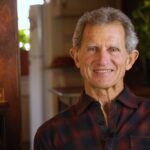 Charley Cropley, ND, graduated from National College of Naturopathic Medicine in 1979. He has been a practicing naturopathic doctor, teacher, and author in the Boulder/Denver area for the last 35 years. Dr Cropley has trained hundreds of doctors in his methods of nutrition and Self-Healing. He is the author of numerous articles, several books, and courses. Dr Cropley frequently lectures at the colleges of naturopathic medicine, and is widely regarded as one of today’s leading thinkers and teachers in the philosophy and practice of Self-Healing. His methods of Self-Healing are complementary and strengthen all forms of medicine and therapy.
Charley Cropley, ND, graduated from National College of Naturopathic Medicine in 1979. He has been a practicing naturopathic doctor, teacher, and author in the Boulder/Denver area for the last 35 years. Dr Cropley has trained hundreds of doctors in his methods of nutrition and Self-Healing. He is the author of numerous articles, several books, and courses. Dr Cropley frequently lectures at the colleges of naturopathic medicine, and is widely regarded as one of today’s leading thinkers and teachers in the philosophy and practice of Self-Healing. His methods of Self-Healing are complementary and strengthen all forms of medicine and therapy.
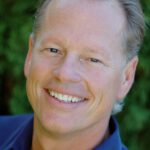 Mark Percival, DC, ND, is an educator, author, uniquely effective clinician, and health coach. As the original founder of Health Coach®, Dr Percival was advocating “health coaching” long before the need for this emerging area of healthcare caught the attention of national media. His audiences have included thousands of healthcare practitioners and members of the public throughout Canada, United States, and Australia. The past 10 years, however, have been dedicated almost exclusively to developing web-based assessment and education systems. Dr Percival continues to run an active practice 1 week a month, which he refers to as his “real world laboratory.”
Mark Percival, DC, ND, is an educator, author, uniquely effective clinician, and health coach. As the original founder of Health Coach®, Dr Percival was advocating “health coaching” long before the need for this emerging area of healthcare caught the attention of national media. His audiences have included thousands of healthcare practitioners and members of the public throughout Canada, United States, and Australia. The past 10 years, however, have been dedicated almost exclusively to developing web-based assessment and education systems. Dr Percival continues to run an active practice 1 week a month, which he refers to as his “real world laboratory.”





